NVIDIA GeForce GTX 660 Ti Video Card Review w/ ASUS, EVGA & MSI
Overclocking Results
In our overclocking efforts we utilized MSI’s Afterburner, EVGA’s Precision, and ASUS’s GPU Tweak for extracting the most out of each card. All of our clocks were reached on the default voltage provided by the manufacturer, with only the board power being adjusted to its maximum setting.
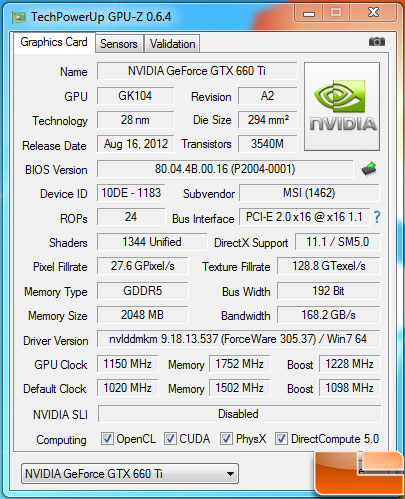
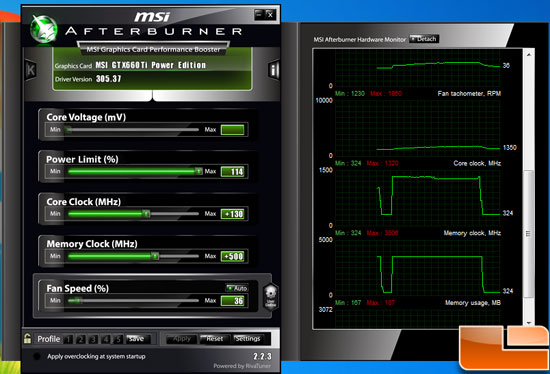
First up in our overclock results we have the MSI GeForce GTX 660 Ti. We were able to run stable at 1150MHz GPU core and 7008MHz on the memory. That is a full 130MHz over the default core speed and 1000MHz over the default memory speed! The Boost Clock also got a 130MHz jump to 1228MHz.
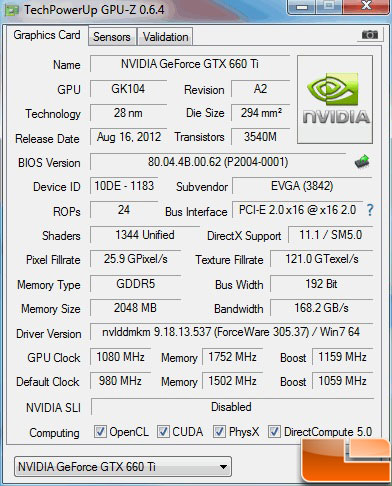

Next up is the EVGA GeForce GTX 660 Ti Super Clock. The core was stable running 1080MHz, 100MHz over the default speeds and the memory reached the same 7008MHz as the MSI GeForce GTX 660 Ti. Boost Clock is tied to the core clock and got the same 100MHz bump up to 1159MHz.
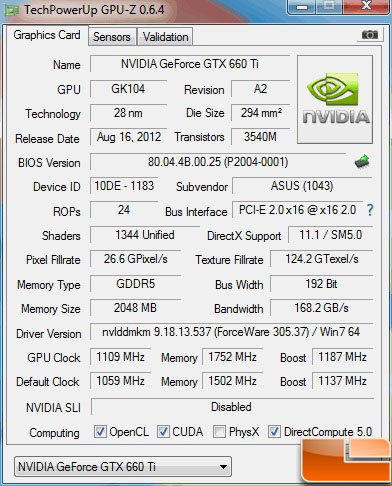
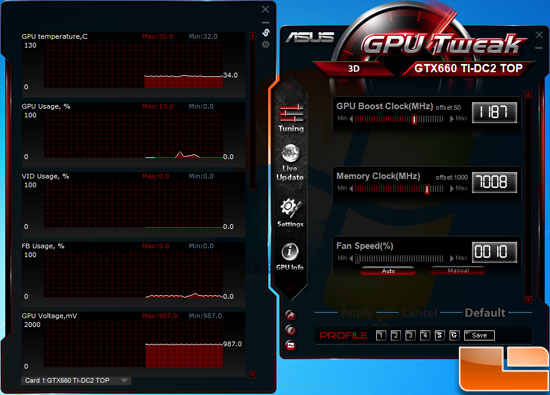
Finally we have the ASUS GeForce GTX 660 Ti. By default it started out with the highest of the three GeForce GTX 660 Ti cards we have here, with 1059MHz on the core. After some tweaking we were able to get an additional 50MHz on the core and the same 1000MHz jump to 7008MHz on the memory. Boost clock went from 1137 to 1187MHz.
Overclock Testing Results
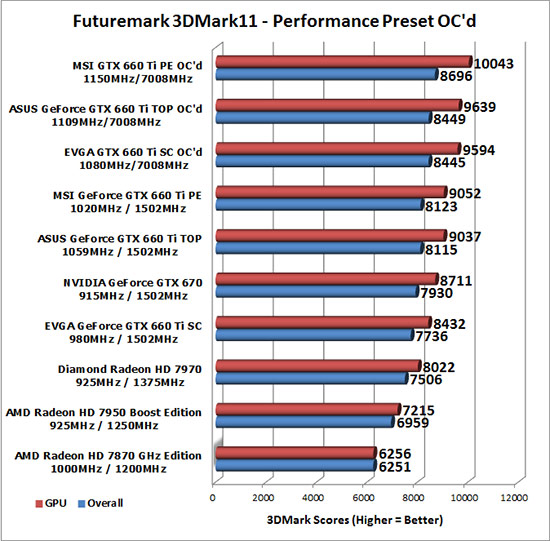
For our overclocked results we turn back to 3D Mark 11. With the clocks turned up we see the MSI GeForce GTX 660 Ti Twin Frozr pull away and post one of the highest GPU’s scores we have seen for a single card. The extra cooling provided by the Twin Frozr cooler helps the GPU to stay in boost for longer amounts of time. The ASUS GeForce GTX 660 Ti also pulls off some great numbers here, coming in just shy of 10k GPU score. The EVGA GeForce GTX 660 Ti Super Clock is certainly not least as it is right on the heels of the ASUS card. While the numbers are great for bragging rights, you would be hard pressed to tell the difference between the 3 overclocked GeForce GTX 660 Ti cards in actual gameplay.

Comments are closed.